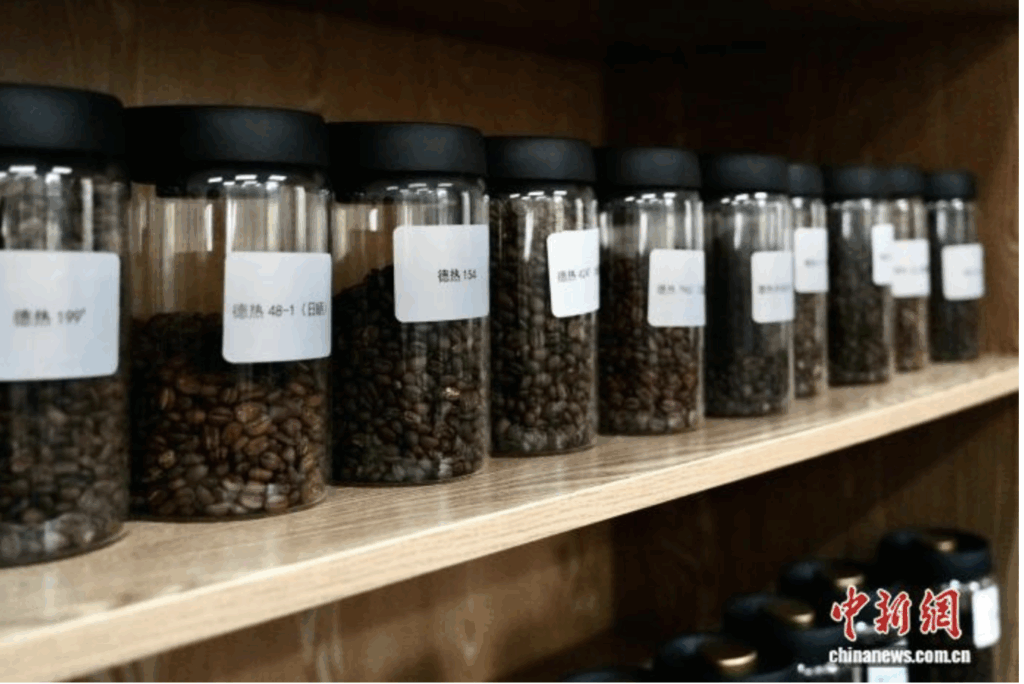https://j.people.com.cn/n3/2025/1013/c95952-20375958.html
The Yunnan Dehong Tropical Agricultural Sciences Institute, located in “China’s Coffee Home” Ruili City, Dehong Dai and Jingbo Autonomous Prefecture, on the border with Myanmar, has preserved over 1,100 coffee genetic resources. This provides solid support for China’s coffee industry’s transition from “germ resource dependence” to “seed source independence.” China News reported.
The institute has been collecting and preserving coffee genetic resources from both within and outside China since 1967, and in 2009 the institute’s “Coffee Gene Bank” was certified as a “Coffee Genetic Resource Field” by the Ministry of Agriculture and Rural Affairs. Furthermore, in 2019 it was registered as the “National Tropical Plant Genetic Resource Bank/Coffee Genetic Resource Branch,” making it the resource field with the largest variety and number of coffee genetic resources in China. According to Bai Xuehui, deputy director, the institute ranks first in China in the number of superior varieties and has supplied an area of over 67,000 hectares to date, accounting for approximately 80% of China’s total coffee cultivation area. In recent years the institute has made progress in tissue culture and grafting techniques.
Since the 1990s, the institute has introduced genetic resources through exchanges with the Kenya Coffee Research Institute and cooperated with the Portuguese Coffee Rust Research Center. There is also cooperative relationships with research institutions in Southeast Asian countries, including Vietnam, Myanmar, and Thailand.

